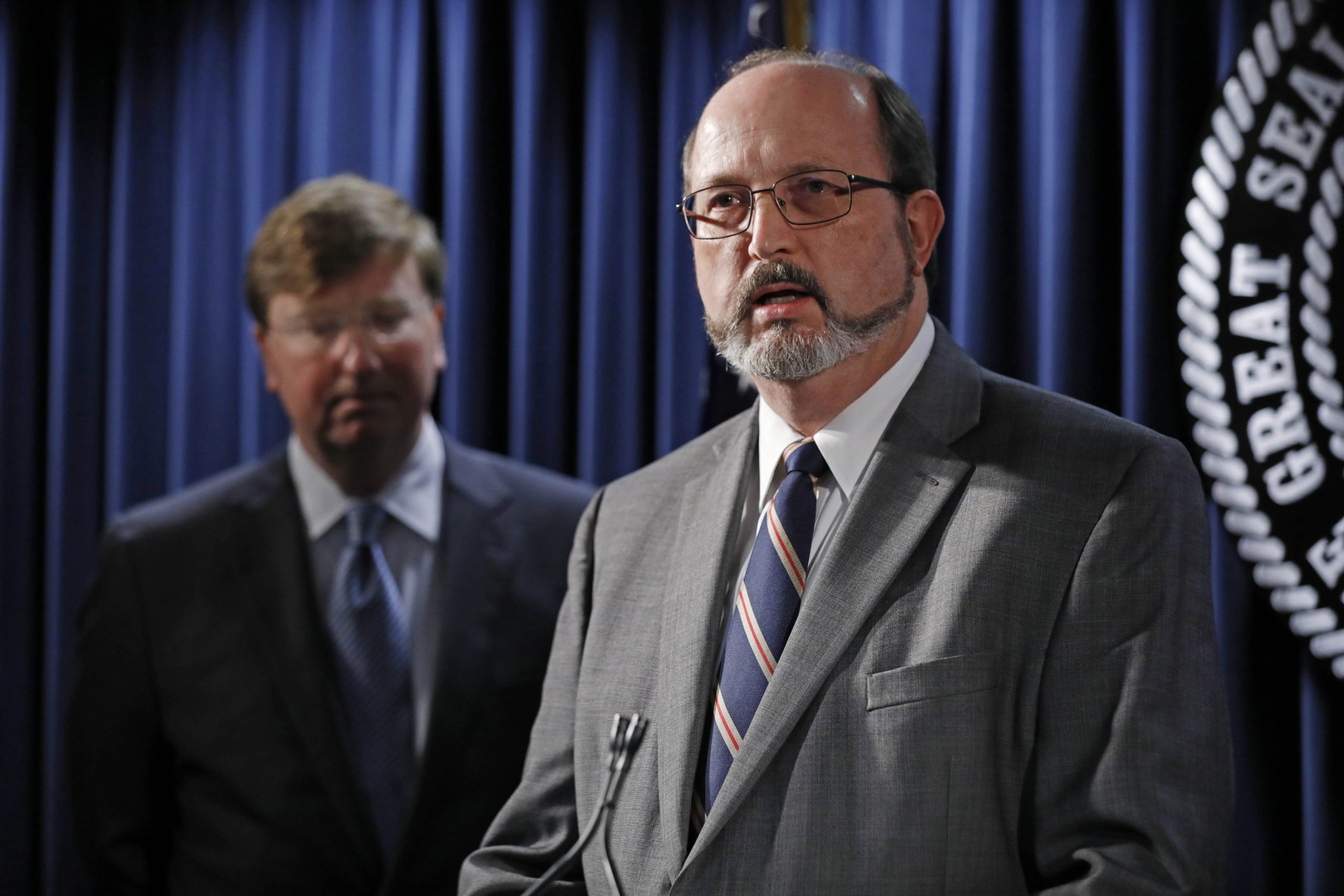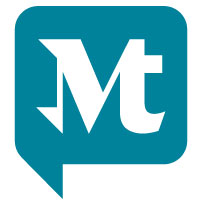Mississippi Today
State leaders still won’t fix scandalous welfare program that serves few poor families

State leaders still won't fix scandalous welfare program that serves few poor families
Now that Mississippi's welfare department isn't hemorrhaging federal grant funds as a result of widespread mismanagement and political corruption, it has over $100 million to spare.
But the agency, Mississippi Department of Human Services, won't say what it's going to do with the money; whether it's going to try to reach more needy families; or how it's going to finally start tracking outcomes of the program.
In the three years following arrests in the largest public fraud scandal in state history, the agency led by Gov. Tate Reeves has never released a full accounting of its current welfare expenditures. There isn't even a list of organizations receiving the funding on the agency's website, nor are its subgrant agreements available online.
And lawmakers, in their seventh week of the Legislative session, haven't taken one action to address the logjam. Instead, they've killed at least 11 bills aimed at improving the administration of the agency and its funds, as well as at least five amendments offered to do the same on the floors of both chambers.
All the bills filed to address these problems were killed by Republican committee chairs without debate, and all the amendments were introduced by Democrats and voted down by Republicans, primarily along party lines.
“(Mississippi Department of Human Services) has certainly not held up to its mission or its responsibility to those who need it the most,” said Rep. Omeria Scott, D-Jones, who offered an amendment to the MDHS appropriations bill on Wednesday to make increases to the agency's budget, which Republicans reduced. “I do hate that through the general bills process that there was no legislation for a board, or no legislation for any of these audits that are in this appropriations bill, that we got any reports or any demands or anything like that. That has not been before us, and I imagine won't be before us, but let me say to you that there are areas over there in Human Services that need some escalation.”
While Republican leadership says it has cleaned up fraud within the agency, that doesn't mean the welfare program, called Temporary Assistance for Needy Families, is reaching the needy or helping people enter the workforce. In fact, during the height of the scandal, the state was using more of its TANF funds to help more poor Mississippians than it is today.
In 2022, a monthly average of 246 adults and 2,265 children benefited from the welfare check — no more than $260 for a family of three (a rate that was raised in 2021 for the first time since 1999). Mississippi is consistently among the most impoverished states in the nation with 1-in-5 of its residents living below the poverty line. The assistance is reaching about 4% of the more than half-a-million Mississippians living in poverty.
Meanwhile, the state continues to rack up tens of millions in welfare funds. By October of 2021, more than a year ago, Mississippi's TANF program had amassed $97.9 million in unobligated funds. While the agency hasn't released data showing how they spent the money within the last year, all indications are that the number of unspent TANF funds has only grown, especially since the state didn't issue a single new TANF subgrant in 2022.
In October, MDHS Director Bob Anderson hesitated to say how his agency might spend the money, or whether it would use the funds to, for example, increase the number of child care vouchers it is able to provide to low-income families.
“Understand, people have a lot of other plans for that money as well,” Anderson said.
MDHS has refused to answer Mississippi Today's questions about which people and what plans.
The sections of the TANF program that have received most public attention are:
- Cash assistance — the money that goes out directly to families who qualify for the welfare check
- Subgrants — the money that goes to organizations to provide TANF-related services, such as after school programs, parenting classes and workforce training
But these currently account for less than half of the state's annual federal TANF grant.
And according to the state's checkbook, the state spends millions of TANF funds each year on items outside of cash assistance or TANF subgrants — such as IT contracts, a contract with the company who conducts drug testing of welfare applicants, interagency transfers to the state auditor's office or payments to the attorneys crafting the civil case against NFL legend Brett Favre and others. There has not been a public accounting of these purchases, nor have they been discussed in audits, legislative hearings or among lawmakers publicly.
Each year, the state also transfers a large chunk of TANF funds, the amount unknown to the public, to Mississippi Child Protection Services, the embattled state agency responsible for investigating child abuse and neglect and overseeing foster care across the state. The financial maneuver is preventing the state from taking advantage of unprecedented federal matching funds offered under the 2018 Family First Prevention Services Act to help families stay intact.
Aside from the scandalous stories about politicians and famous athletes funneling TANF money to their pet projects during former Gov. Phil Bryant's administration, the welfare program itself is as forgotten and ignored as it was before the arrests.
Lawmakers passed a bill in 2021 to place law enforcement officers within MDHS's Fraud Investigation Unit and a bill in 2022 to require that employees of the unit report civil or criminal violations to the state auditor's office.
Neither of these changed how the agency runs its TANF grant or introduced any accountability for the agency to spend the money effectively.
In 2021, the first full year after the scandal was revealed, Mississippi spent just $35.6 million of the $86.5 million it receives in federal funds each year, according to federal reports released in December. The reports are typically outdated by about a year.
To put that into perspective: In 2018, Mississippi spent about $113 million in federal TANF funds (including some unspent funds from years before). If $50 million of that went to fraudulent or unallowed purchases, that leaves $63 million that Mississippi spent legally that year, including to organizations similar to those providing services today.
In 2018, at the height of the fraud scandal, the state pumped $7.3 million directly to families, whereas it only gave $3.5 million in cash assistance in 2021. Either way you slice it, Mississippi's welfare department was using more TANF money to help more poor Mississippians during the years of Bryant's appointed former MDHS Director John Davis, who is likely going to prison, than the agency is today under Reeves and Anderson.
Mississippi Department of Human Services previously told the public that it is allocating about $69 million of its TANF funds each year — $4.1 million on cash assistance, $34.5 million on subgrants to organizations and $30 million to plug budget holes at the Mississippi Department of Child Protection Services.
But it has not made documentation of these expenditures available to the public. Also, these figures are not clearly reflected in federal reports. In 2021, for example, the state only reported spending $15 million in TANF funds on “child welfare” – the only spending category that would appear to correspond with the CPS transfers.
The agency would not explain the reason for the discrepancies in the federal reporting, other than to say that it's possible not all of the money that the state obligated was actually used. The department has also repeatedly failed to explain which purchases fall under which categories in the federal reports.
The state is allowed to use grant funds from one year to another for a period of three years. So funds being spent today could technically be coming from the state's 2021 TANF grant. That, and the fact that some subgrants span more than one year, during which the subgrantee can draw the funds at their leisure, have perpetually created a foggy picture of the program.
The only documentation of TANF expenditures that MDHS appears to have made public, at the request of Mississippi Today, is a list of subgrantees to whom the state awards a fraction of the funds. This information does not appear on the agency's website, nor in its annual report.
In mid-2020, the department provided to Mississippi Today a spreadsheet of TANF purchases that included, in addition to payments to subgrantees, expenditures for things like tech support or hotels for employee training. In October, Mississippi Today extracted and analyzed all purchases labeled under the TANF program from the state's accounting database from 2015 to 2022, all of which Mississippi Today made publicly available, but the expenditures didn't add up to nearly the amount the state reported spending to the federal government. Transfers from MDHS to CPS also do not appear on the state's accounting database.
The department began the most recent Request for Proposals — a competitive bid process — for TANF subgrants in June of 2022. But due to staff changes within MDHS's Division of Workforce Development and Partnership Management, a spokesperson said, the agency has not made an award.
“Once we have a finalized plan we will make a public announcement,” MDHS Chief Communication Officer Mark Jones offered in response to questions about the agency's plan for the TANF program moving forward.
Even with the grants most recently awarded in 2021, it's unclear what all of the organizations are accomplishing or how the programs align with a vision to reduce poverty. The current grants cover parenting initiatives ($8.1 million), after school programs ($13.7 million), and workforce development ($14.9 million). The subgrant agreements aren't even available on Mississippi's transparency website.
The largest award was a $6.9 million parenting initiative grant to Mississippi Children's Home Society, or Canopy Solutions, a children's behavioral health services provider, including a residential psychiatric facility. Canopy has been a TANF subgrantee for years and works within the foster care system to prevent family separations. Canopy also recently launched a specialized nonprofit school for students with learning differences in Ridgeland, essentially replacing the recently shuttered New Summit School by hiring its employees and recruiting its students.
New Summit closed after its founder Nancy New was charged within the welfare scandal. New was funneling TANF money to New Summit, a for-profit school, and also running a separate scam to defraud the Mississippi Department of Education, she admitted in her 2022 guilty pleas.
Other current TANF subgrantees include the Mississippi Alliance of Boys and Girls Clubs ($5.3 million), Save the Children Federation ($2.4 million), YMCA Metro Jackson ($1 million), and Juanita Sims Doty Foundation ($1 million) for afterschool programs; and Institutions of Higher Learning ($2.4 million), Mississippi Department of Employment Security ($1.5 million), South Delta Planning and Development District ($2.1 million), Southern MS Planning and Development District Gulfport ($3.6 million), Three Rivers Planning & Development District ($4.7 million) for workforce training.
Since welfare reform in the late 1990s, state leaders, workforce specialists, industry experts and advocates have met, studied, and discussed ad nauseam the barriers they've identified for families escaping poverty – chief among them child care, transportation and workforce training that aligns with market needs. The concept of TANF when Congress created it was to move people into the workforce, hopefully ending the reliance on government assistance.
Mississippi could be transferring up to 30% of its TANF funding to supplement the Child Care Development Block Grant, which provides child care vouchers to low-income working parents. The program has always served just a small fraction of low-income children needing child care across the state.
While legislation is not required for MDHS to make this transfer – since it has done so in the past, according to federal reports – the current Legislature has killed bills and amendments to compel MDHS to use TANF funds this way. And the agency refuses to answer questions about whether it will or, if not, why it won't. The agency has, however, complained that without a budget supplement, 12,000 kids may be kicked off the voucher.
“From the beginning of the (TANF) program, there have been thoughts like, ‘We need to figure out a way to provide daycare. We need to figure out a way to provide transportation and that will help get a large number of people back into the workforce,' which is said to be the aim of all these reforms,” Senate Public Health Committee Chair Hob Bryan, D-Amory, said during a floor debate on several TANF-related amendments last week. “And it is extremely frustrating that we have money that could be used for additional vouchers for childcare, so that there would be someone to care for children when their parent is at work and we're not taking advantage of that. And yet we complain about people not working.”
This article first appeared on Mississippi Today and is republished here under a Creative Commons license.
Mississippi Today
Legislation to strip key power of PERS Board passes both chambers
Legislation that strips significant power from the board that governs the state's public employee pension program has passed both chambers of the Legislature.
Under the legislation set to go to Gov. Tate Reeves during the final days of the 2024 session, the Public Employees Retirement System Board would no longer have the authority to increase the contribution rate levied on governments (both on the state and local level) to help pay for the massive retirement system.
The legislation, which passed both chambers in recent days, was a reaction to the decision by the board to increase by 5% over a three-year period the amount local governments contribute to each employee's paycheck for their retirement. Under the PERS Board plan, the employer contribution rate would have been increased to 22.4% over three years, starting with a 2% increase on July 1.
The board said the increase was needed to ensure the long-term financial stability of the system that pays retirement benefits for most public employees on the state and local levels, including staff of local school districts and universities and community colleges.
City and county government officials in particular argued that the 5% increase would force them to cut government services and lay off employees.
Under the bill passed by the Legislature there still would be a 2.5% increase over five years — a .5% increase in the employer contribution rate each year for five years.
In addition, legislative leaders said they plan to put another $100 million or more in state tax dollars into the retirement system in the coming days during the appropriations process.
Under current law, the PERS Board can act unilaterally to increase the amount of money governmental entities must contribute to the system. But under the new bill that passed both chambers, the board can only make a recommendation to the Legislature on increasing the employer contribution rate.
The PERS Board also would be required to include an analysis by its actuary and independent actuaries on the reason the increase was needed and the impact the increase would have on governmental entities.
In the 52-member Senate, 14 Democrats voted against the bill. Only one House member voted against the proposal.
Sen. David Blount, D-Jackson, said the bill failed to address the financial issues facing the system. He said a permanent funding stream is needed.
Blount said, “You are moving in the wrong direction and weakening the system” with the bill the Legislature approved. “Is it painful? Is it going to cost more money? Yes, but we need to do it” to fix the system.
The system has assets of about $32 billion, but debt of about $25 billion. But Sen. Daniel Sparks, R-Belmont, and others argued that the debt was “a snapshot” that could be reduced by strong performance from the stock market. The system depends on its investments and contributions from employers and employees as sources of revenue.
The system has about 360,000 members including current public employees and former employees and retirees.
The legislation states that no changes would be made for current members of the system. The legislation does reference looking at possibly changing the system for new employees. But that would be debated in future legislative sessions.
The bill does not include an earlier House proposal to dissolve the PERS Board, which consists primarily of people elected by the members of the system, and replace them with political appointees.
This article first appeared on Mississippi Today and is republished here under a Creative Commons license.
Mississippi Today
A solution to the Republican impasse on Medicaid expansion
Kathleen O'Beirne knocked loudly on Sen. Kevin Blackwell's office door in the basement of the Mississippi State Capitol on Saturday morning.
O'Beirne, a Ridgeland resident and mother of two boys, has been closely tracking the back-and-forth debate on Medicaid expansion, which Blackwell, as chairman of the Senate Medicaid Committee, is leading for the Senate. She and a group of other concerned citizens simply wanted a word with the Republican leader.
But there was no answer at the door, and there would be no conversation. So O'Beirne and the others took blank sheets of copy paper and began writing letters. When they finished writing, they taped the letters to Blackwell's door.
“I'm here because of the human cost of not expanding health care coverage to poor Mississippians,” O'Beirne said outside Blackwell's office. “But I'm also here because I'm a taxpayer. And I see that our senators are about to pass up literally billions in federal tax dollars that you and I and most other Mississippians already pay. We have the chance to bring all of that money back to the state of Mississippi, but we're about to walk away from it for no good reason.”

As O'Beirne and other Mississippians have closely followed, Blackwell has been as dug-in as any lawmaker during the Medicaid expansion fight. This week, after agreeing to hold public conference committee meetings to debate Medicaid expansion, he refused to meet a second time with his House counterparts. He has seldom engaged with House Republican leaders in private, either.
He did, however, choose to speak to a gaggle of reporters on Friday after the Senate sent a compromise plan to the House for consideration. In the interview, he drew hard lines against any additional compromise with the House, specifically around a work requirement, and even doubted whether his own plan had the necessary support from his Republican Senate colleagues.
READ MORE: Blackwell says Senate won't budge on Medicaid work requirement
Blackwell and some Republican senators have long maintained that any expansion deal must include a requirement that Medicaid recipients work, which is a conservative policy desire that the federal government has struck down in 13 previous expansion states. Including a stringent work requirement, health care advocates and legal scholars believe, would effectively kill any expansion plan.
But in the plan the Senate put forward on Friday, they would still mandate the requirement. It would also force the state's attorney general to sue the feds over any rejection and hope that a conservative 5th Circuit Court of Appeals allows the work requirement to go into effect. Unless a work requirement was granted by either the federal Medicaid agency or the federal courts, expansion could not go into effect under the Senate plan.
READ MORE: The unlikely Mississippi politician who could tank Medicaid expansion
However, an earlier House proposal also included a work requirement but would allow expansion to go into effect if the state could not convince the federal government to allow it. House leaders have not yet publicly responded to the Senate plan they received on Friday, but the work requirement piece has been the main topic of deliberations on that side of the building.
The House and Senate Republican remained at an apparent impasse as of midday Saturday and adjourned for the day without giving any public updates on expansion negotiations. Both chambers were working into the evening Saturday and will work again Sunday to hammer out final agreements on a $7 billion state budget.
None of that sat right with O'Beirne, inspiring her to come back to the Capitol on Saturday and make the unannounced visit to Blackwell's office. When asked what message she was trying to deliver to Blackwell, she said: “Well, a compromise.”
O'Beirne then summed up what she wrote in her note to Blackwell:
“I'm a recovering lawyer, so I'm used to resolving litigation. I think there's a very obvious compromise that the Senate and the House could come to if they were willing to do the work.
My suggestion is to keep the Senate's work requirement. Keep the provision that says if CMS kicks back the work requirement, then the AG has to sue the feds. But also, keep the House provision that will allow Medicaid expansion to go into full effect, even if CMS kicks back the work requirement.
So you go on and you start pulling down those billions of federal dollars that help the state and people get health care coverage. Then in the meantime, let the lawyers and government officials sort out the work requirement business. To me, that's a win-win-win.
Now, I'm sure Lt. Gov. Hosemann, Sen. Blackwell and other leaders are mulling that over. Maybe they've already had that thought. To me, it's such an obvious compromise that takes full advantage of our tax dollars. It's not wasting our tax dollars. It's helping communities. It's helping hospitals. It's helping doctors. It's helping needy patients. It is just an all around win that I sure hope they can get to.”
Kathleen O'Beirne
Such a compromise would require some careful drafting of the legislation, experts say, and whether it checks enough boxes for Blackwell and the hard-line senators is anyone's guess. But O'Beirne, a self-described “pragmatist,” felt led to share it with Blackwell on Saturday.
“I really do think there's a path here,” O'Beirne said. “It seems like a very simple solution right under our noses that Senate leaders are about to pass up. How frustrating would it be to come all this way to get nothing?”
This article first appeared on Mississippi Today and is republished here under a Creative Commons license.
Mississippi Today
Lawmakers send MAEP education funding formula rewrite to governor
A new school funding formula has been approved by the Legislature that, like the long-standing Mississippi Adequate Education Program, will rely on an objective mechanism to determine how much state funding is needed to operate schools.
The push to replace MAEP has been one of most contentious issues facing legislators in the final days of the 2024 session. There have been efforts for years to replace the formula by those who say the state could not afford it.
On Saturday the 52-member Senate with three dissenting votes passed on to the governor a compromise proposal to replace MAEP. The House had unanimously passed it late Friday.
“The whole point of us doing this is to make certain our school districts are treated as fairly and as best we could,” said House Education Chair Rob Roberson, R-Starkville. He said the new formula will provide additional money for poor districts and for low-income and special-needs students.
Roberson's original bill did not include an objective funding formula, which had been the hallmark of MAEP. Senate Education Chairman Dennis DeBar, R-Leakesville, who was reluctant to rewrite MAEP, finally acquiesced, but was insistent that any rewrite include an objective formula that took out of the hands of politicians – namely legislators – the amount of money needed for the operation of local school districts.
On Saturday, DeBar told senators that if the Senate had not insisted on an objective funding formula, the Legislature could have “willy nilly” decided the level of education funding.
“This formula will allow for predictability over time. Whereas the House bill did not,” DeBar said. “It (the House plan) was a one-year thing where the Legislature could come in and decide to increase or decrease funding for education. This will hold our feet to the fire in the Legislature and ensure our schools are funded.”
House Education Vice Chairman Kent McCarty, R-Hattiesburg, told House members that the objective funding formula made the original House proposal stronger.
“I think this is a good addition to the bill,” he said. Like MAEP, the formula will be recalculated every four years and in the intervening years there will be an inflation factor added to the funding.
Under the new formula, schools will receive per student the average teacher salary divided by 14, which represents the average student-teacher statewide ratio. In addition schools will get another 20% of that amount for administrative costs, 30% for ancillary costs and money for operations and maintenance based on the three-year, per-square-foot average of the school district's operations and maintenance costs.
On top of that, the school districts will receive additional funds for students in certain categories, such as for special-education students, those living in poverty, or living in areas of high poverty and for students who do not speak English as their primary language. The additional money provided to categories of students was a key component of the original House bill.
Like MAEP, local school districts will be required to pay a portion of the cost. But wealthier districts will be required to pay more than districts with a smaller local property tax base. No district will be mandated to pay more than 27% of the cost.
Sen. Hob Bryan, D-Amory, one of the architects of MAEP in 1997, was one of the three no votes.
While Bryan said there appeared to be good features to the new funding plan, more time was needed to study it.
“It is simply not possible to enact a funding formula for public education in this legislative session where we know what we are doing,” he said. “We don't have enough time for people to look at the new proposal, consider alternatives.”
Bryan pointed out that if MAEP was unpredictable for school districts it was because of the Legislature's refusal to fully fund it. He said it is possible – even likely – that the same will occur with the new formula.
MAEP had language saying the formula “shall” be fully funded, But the full funding mandate was ignored every year since the program was fully enacted in 2003 except for twice.
Under the first year of the new formula, which goes into effect with the beginning of the new fiscal year on July 1, K-12 education is supposed to receive an additional $230 million.
The additional funding will bring the education budget to $2.94 billion – about $50 million less than MAEP would have provided if fully funded.
DeBar said that based on inflation it will take about $50 million more in funds to fully fund the new formula next year.
The new formula will be called simply the Mississippi Student Funding Formula.
Sen. Angela Hill, R-Picayune, voted against the proposal because she feared that like MAEP the new formula would make a commitment over time the state could not afford. Plus, she said she was concerned about the money going to educate students who spoke English as a second language. Hill said she wanted more details on that feature of the bill.
This article first appeared on Mississippi Today and is republished here under a Creative Commons license.
-
Local News3 days ago
Sister of Mississippi man who died after police pulled him from car rejects lawsuit settlement
-
Mississippi News7 days ago
2 dead, 6 hurt in shooting at Memphis, Tennessee block party: police
-
Mississippi Today3 days ago
At Lake High School in Scott County, the Un-Team will never be forgotten
-
Mississippi News7 days ago
Forest landowners can apply for federal emergency loans
-
Mississippi News22 hours ago
One injured in Mississippi officer-involved shooting after chase
-
Mississippi News5 days ago
Cicadas expected to takeover north Mississippi counties soon
-
Mississippi News5 days ago
Viewers make allegations against Hatley teacher, school district releases statement – Home – WCBI TV
-
Mississippi News7 days ago
Nationwide health alert issued for ground beef over potential E. coli risk
































